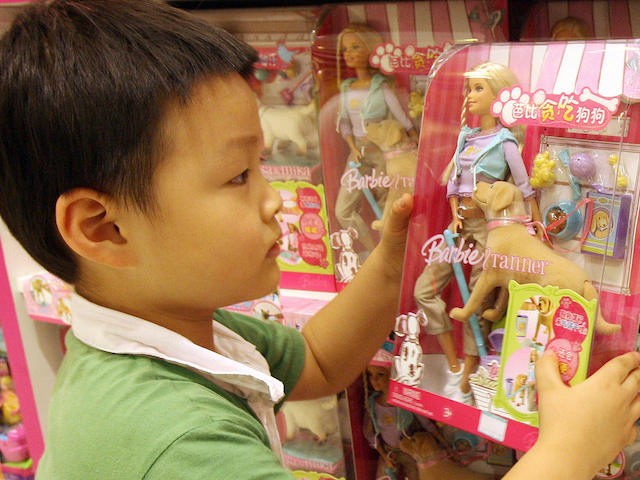Legislation under consideration in California prohibits retailers from having separate boy and girl sections, mandating, instead, “gender neutral” clothing and toy “safe spaces” for children to find their identities.
“In the state of California, where we hope to inspire, for example, more girls to get into science and engineering and mathematics, we want to ensure that those periodic tables and dinosaurs are not in the boys’ section,” California Assemblyman Evan Low (D) said in a Los Angeles Times report. “We just want to let kids be kids.”
“This message is about inclusivity,” Cristina Garcia (D) said. “I think we have kids who are figuring out their identities, and so we want to give them that safe space to do that.”
The Times reported:
Low, chairman of the Legislative LGBTQ Caucus, was a coauthor on the measure with Assemblywoman Cristina Garcia (D-Bell Gardens), leader of the Legislative Women’s Caucus. The bill, introduced Feb. 18, is in committee.
A former math teacher, Garcia said she wanted to play with Lincoln Logs as a child but was sometimes discouraged because they were seen as a toy for boys. But that kind of play can build spatial ability, which has been linked to improved performance in science, technology, engineering and mathematics — fields in which girls and women are often underrepresented.
Low said it was inspired by a staffer’s 9-year-old daughter, who complained to her mother that she had to go to the boys’ section to find toys that appealed to her love of science and math.
“Playtime is fun, but it’s also about developing a skill set,” Garcia said. “It’s about ideas and being creative. We want to make sure we’re not limiting a kid’s creativity.”
“At a young age, why would we want to prevent a young girl from getting into wood shop or being a firefighter?” Low said. “All of these items might be listed in the boys’ section.”
The bill, AB 1084, would give government control over private sector businesses, stating:
This bill would require a retail department store with 500 or more employees that sells childcare items, children’s clothing, or toys, to maintain undivided areas of its sales floor where the majority of those items being offered are displayed, regardless of whether an item has traditionally been marketed for either girls or for boys.
Businesses also would be prohibited from using gender-specific signage in displays.
The legislation also will blur the line for traditional boy and girl clothing:
A retail department store that offers children’s clothing for sale shall maintain one undivided area of its sales floor where the majority of the children’s clothing being offered shall be displayed, regardless of whether a particular article of children’s clothing has been traditionally marketed for either girls or for boys.
The lawmakers behind the bill said some businesses have already taken this approach to store displays, including Target, which phased out gender-based signage in its toy and clothing sections in 2015. Walmart and Toys R Us are also arranging products to abolish the idea that girls and boys often have different toy preferences and nothing prevents children from visiting any aisle in stores.
But lawmakers argue they are helping children with this legislation.
“For California, we kind of feel like we’re playing catch-up,” Garcia said. “And we want to ensure that other folks are moving faster in that direction.”
Low also touted state law that requires bathrooms that can be used by men and women and another law passed in the state in 2018 to require corporations to have women on boards.
“That’s the spirit of the law and what we hope to accomplish, especially in today’s day and age,” he said.
If the bill becomes law it would take effect on Jan. 1, 2024, and those violating the law could face a $1,000 fine if a store does not comply within 30 days of being cited for violating that statute.
Follow Penny Starr on Twitter or send news tips to pstarr@breitbart.com

COMMENTS
Please let us know if you're having issues with commenting.